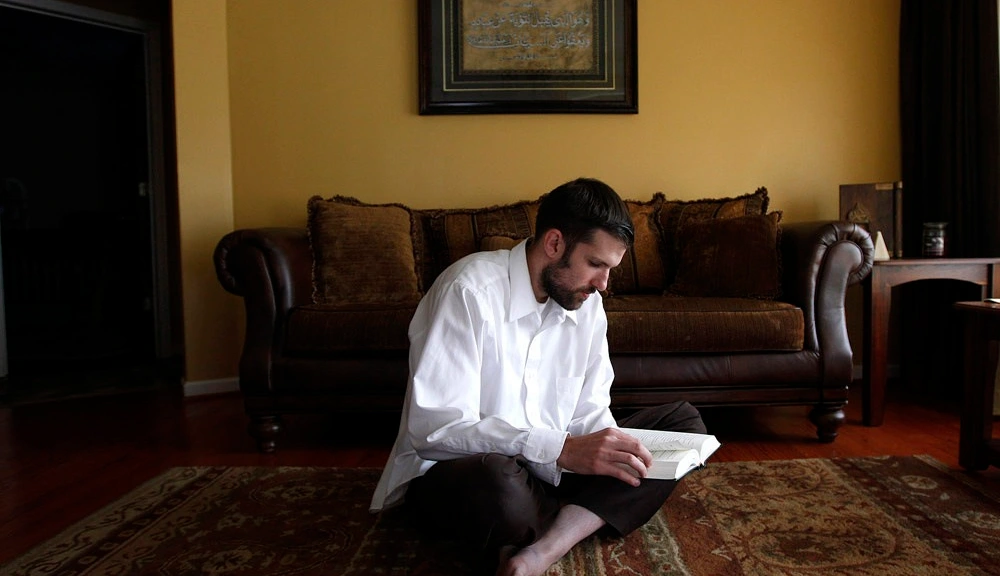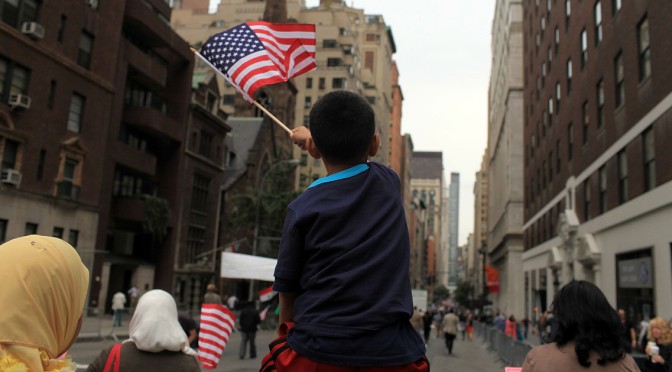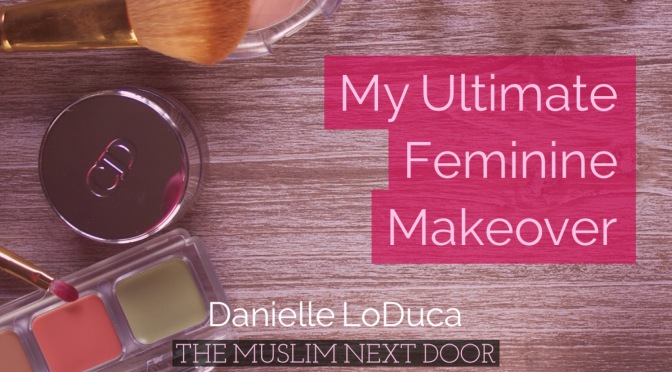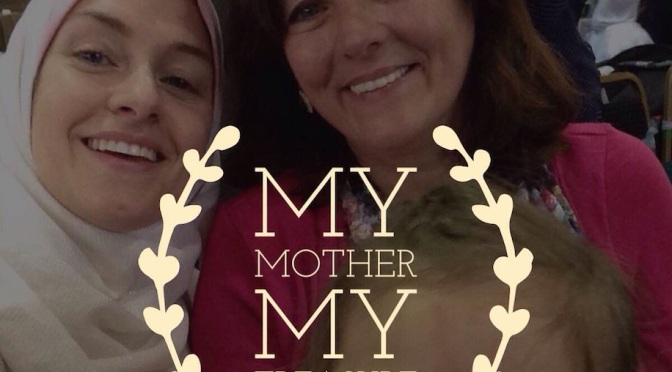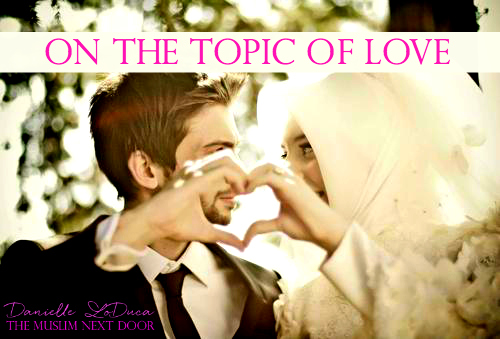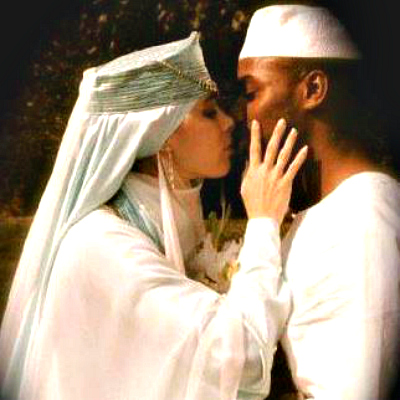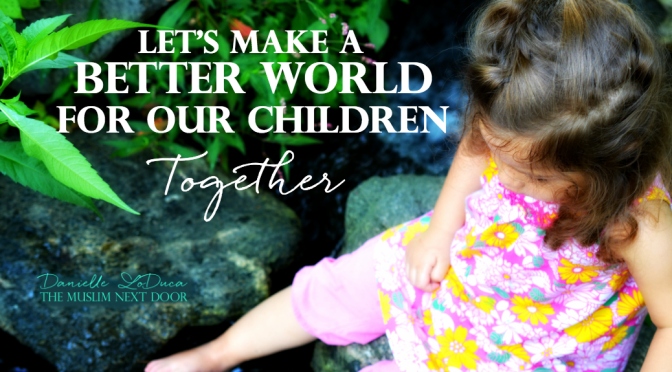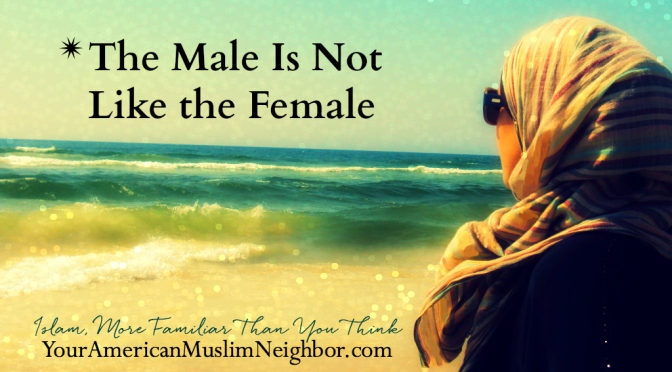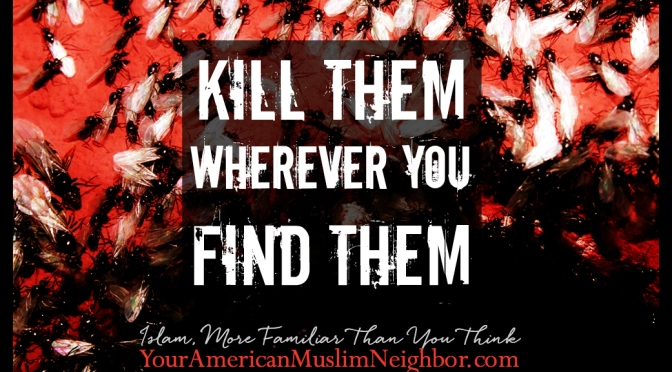A few years back, my house was invaded by flying ants. I would find them crawling near my kitchen window. Sometimes I would see them fall down out of the air – weak.
One had fallen into a cup of water, writhing.
Ants are small, but they run away from danger. They find their way out of difficult situations. They help each other.
They’re alive and they clearly have a will to live.
I preferred to remove them and place them outside. If I saw them struggling, near death, I resorted on a few occasions to ending it quickly for them – in order to remove the suffering.
For me, killing an ant is a moment of agony. You can see it on my face. It’s hard to take the life even of a small insect.
In Islam, we’ve been permitted to remove pests that may be harmful to us or our homes, even if it means exterminating them; but the appreciation and respect for life we are instilled with by the Quran and the example of the last prophet, Muhammad, make it difficult to do that.
In Islam, we’ve been permitted to eat meat- to kill a living being in order to provide nutrition for our bodies, sustenance for our lives. We’ve been given that permission by the one who gave them life, but there are very strict guidelines on how to do it.
The animal is to be given consideration. It should be treated well, with care. It should never be frightened by witnessing the slaughter of another animal, or even by seeing the blade being sharpened. The blade must be extremely sharp so that the animal doesn’t feel it.
Then, we have to say “Bismillah” – In the name of God.
Because taking a life is no small thing.
So, imagine: Muslims have been instructed to respect life, the lives of animals – even insects.
How could it be possible that human life is easy to destroy? How could it be okay to just kill people?
There are verses in the Quran. Some people love to pull them out and present them all by themselves. Here’s one of them:
“And when the sacred months have passed, then kill the polytheists wherever you find them and capture them and besiege them and sit in wait for them at every place of ambush. But if they should repent, establish prayer, and give charity, let them [go] on their way. Indeed, God is Forgiving and Merciful.” (Quran 9:5)
It’s clear why this verse arouses discomfort and distaste.
Bear with me…
Islam provides guidance for virtually all aspects of life- including war, which is an unfortunate reality that is not going to vanish any time soon.
War is not encouraged in Islam, but it is permitted where there is untenable oppression, or for self-preservation of an established, valid Muslim state.
Violence is not permitted for individuals or rogue or vigilante paramilitary organizations. Only in the context of justifiable war executed by a viable government or ruler.
What would you expect your country to do if it is attacked or threatened?
Or better yet, what does your country do when it is attacked or threatened? If you are an American like me, our country is at war – i.e. killing people – right now.
But, war in Islam has it’s own stringent guidelines and restrictions. All of the guidelines focus on accomplishing what is necessary in the most merciful way. Always with respect for life, fear and reverence for the One Who created life, as well as with methods that reduce damage and unnecessary harm.
In a legitimate war, only combatants are to be fought. Women, children, the elderly, Priests, Rabbis, Monks and even trees are forbidden from being harmed.
Yes, I said trees.
Muslims may not cut down trees or damage structures during combat. Muslims may not slaughter the enemy’s animals except if necessary for food. All unwarranted damage is forbidden.
The verse I quoted above, was revealed in a particular context of a specific war that occurred at the time the Quran was being revealed. That is the case with all of the Quranic verses sanctioning or mentioning fighting.
The Muslims at that time had been suffering years of persecution and oppression at the hands of the Quraysh – for nothing more than believing in One God. The fact that Muhammad’s followers were increasing had caused anger amongst the polytheistic culture and the establishment who profited from idolatry. This inevitably induced the powerful Quraysh tribe to inflict harsh punishments, torture and humiliation on Muhammad and his followers.
The persecuted Muslims ultimately migrated in order to escape the persecution and were invited to a place called Yathrib, which then became Medina, the new Muslim state. As the leader of this new nation, Muhammad established treaties with neighboring tribes. Some of those tribes who entered into treaties with the new Muslim nation later betrayed their treaties and committed acts of aggression.
This verse was permitting retaliation against those idolaters who had committed acts of betrayal and violence and who violated the treaties. If it had meant that Muslims should kill non-Muslims in any context wherever we find them, then the verse which follows the previous verse would be rather peculiar:
“If any of the polytheists seeks asylum from you, grant him asylum until he hears the Word of God. Then convey him to his place of safety. That is because they are a people who do not know.” (Quran 9:6)
This is still in the context of war. The one seeking asylum is not a Muslim, but a polytheist. They are to be granted safety and even escorted by Muslim fighters to a place of safety where they will not be harmed by either side.
If the previous verse had generally meant to kill all disbelievers wherever you find them, there would be no verse commanding Muslim fighters to escort disbelieving soldiers from their enemy during a war, to a place of safety.
And there is this:
“Fight in the way of God those who fight you but do not transgress. Indeed, God does not like transgressors.” (Quran 2:190)
Here it is made clear that permission is being given to fight those who attack. This permission was necessary, because prior to this allowance, retaliation had not been permitted and the Muslims had passively and patiently endured unspeakable torture and oppression for more than ten years.
It is important to note that the word used for fighting in the Quran is not “jihad”, but “Qital” in Arabic and in the entire Quran there is no mention whatsoever of “holy” war.
In the lifetime of the prophet Muhammad, the ones who accepted Islam and followed him had found the greatest source of peace and happiness. They were most willing to endure the oppression of their people and to struggle to share the beauty of Islam with others, in spite of all the difficulties and rejection. Their souls had found peace and satisfaction, like I have, and like so many millions have in Islam, and when the permission to fight in self-defense was given, many of them were shocked and somewhat disappointed.
This was due to the realization that they could no longer bask in the beauty and tranquility of their faith, they would have to instead struggle, strive and even fight to defend its existence. The threat against them was in fact, an existential one. If they had not fought against the powers threatening them, Islam could have vanished altogether.
Regarding this, the following verse was revealed:
“Fighting has been enjoined upon you while it is hateful to you. But perhaps you hate a thing and it is good for you; and perhaps you love a thing and it is bad for you. And God Knows, while you know not.” (Quran 2:216)
This verse is important to me because I see it as a metric. It tells us that the natural disposition of a believer, of a Muslim, is not one that inclines towards violence. Rather, the Muslim, finds war and violence hateful. This example is enough for us to realize that there is something remarkably wrong and tremendously un-Islamic about the bloodthirsty, merciless extremists we see today, though they pretentiously claim validity via Islam.
Furthermore, the reasons for fighting have been explained in greater detail via the Quran. Above, we saw that fighting was sanctioned against those who commit aggression (fight those who fight you). The following verse embellishes the reason war is sometimes necessary:
“[They are] those who have been evicted from their homes without right – only because they say, “Our Lord is the one God.” And were it not that God checks the people, some by means of others, there would have been demolished monasteries, churches, synagogues, and mosques in which the name of God is much mentioned. And God will surely support those who support Him. Indeed, God is Powerful and Exalted in Might.” (Quran 22:40)
If people are oppressed such that they cannot live in peace, when they are driven from their homes unjustly because of their faith in the One God, then there is justification for war under the right circumstances. And it is mentioned here that if God had not checked some people by means of others, many places of worship would have been destroyed. In other words, the right of worship would have been at risk.
The order of words in the Quran is significant. Please take notice of the order of the places of worship referred to. Before Mosques were mentioned, Monasteries, Churches and Synagogues are put forward. This indicates that war is required to protect the right of people to worship when there is oppression and an existential threat.
Perhaps most importantly in understanding war in Islam – in the context of war, if the aggressor – the enemy inclines to peace, the Muslim nation is REQUIRED to also incline to peace:
“And if they incline to peace, then incline to it [also] and rely upon God. Indeed, it is He who is the Hearing, the Knowing.” (Quran 8:61)
This means that if Idolatrous Country A attacks Muslim Country B, Country B may fight back, without transgressing the stringent rules of war in Islam. If Country A wants a ceasefire and to make peace, the Muslim country B is categorically forbidden from continuing hostilities. Country B is required to come to the table and make peace, no matter what atrocities had been committed by the Idolatrous Country A.
Islam imbues in its followers respect and reverence for all life. It is God who gives life and takes it away. We are allowed by the giver of life, in certain instances to take life, such as when it is necessary to remove insects from our homes, or to slaughter an animal for food without going to excesses.
Above all plant, animal and insect life, human life is more sacred. The Quran tells us of God’s established law of old,
“…Whoever kills a soul, unless for a soul or for corruption [done] in the land – it is as if he had slain mankind entirely. And whoever saves one – it is as if he had saved mankind entirely. And Our messengers had certainly come to them with clear proofs. Then indeed many of them, [even] after that, throughout the land, were transgressors.” (Quran 5:32)
This verse expresses the magnitude of murder. Killing one innocent soul is like killing all of humanity. There are so many more examples to give, so many ways in which Islam honors life. The instances in which taking the life of a human being is sanctioned are very few and subject to strict criteria. Harm is to be minimized in all matters.
Violence by individuals is not permitted (except appropriate self defense) nor by vigilante groups that declare themselves a state out of nowhere. It is forbidden to kill innocent men women and children. Even during legitimate war, harming them is to be avoided. In a true Islamic war of self-preservation, drones would not be dropping bombs on innocent civilians.
Islam does not make people violent. It does not encourage people to hate. It is not scary and terrorism has no relationship to Islam.
The people who commit crimes and try to cover them with the blanket of Islam will indeed find justice. Meanwhile, we the people must strive against the tyranny of their lies and refuse to let liars dictate our actions.
We must look deeper and more critically into all current geopolitical issues and into history, which can inform our understanding of much of what is happening today. We must also remember the countless other deranged groups and people who have, and continue to commit crimes against humanity of the worst kind from many different ethnicities – with and without religion as a factor. They include Christians, Jews, Atheists and even Buddhists (such as in contemporary Myanmar). Radical, violent extremists exist across cultures.
Everyone on this planet can do better by having a copy of the Quran and reading it several times at least for a decent grasp of what it says. I recommend suspending judgment on all matters, until sufficient information from many angles has been ascertained and considered.
Remember when you read, that it is meant as guidance for all times and places, but the context in which each verse was initially revealed adds additional understanding about its implementation. So, although verses were revealed dealing with specific wars for example, the guidance is applicable in future wars. But, the original context provides details about the conditions and the reasons and methods for implementation.
May God grant us understanding and remove from us our unwillingness to see. Ameen.

